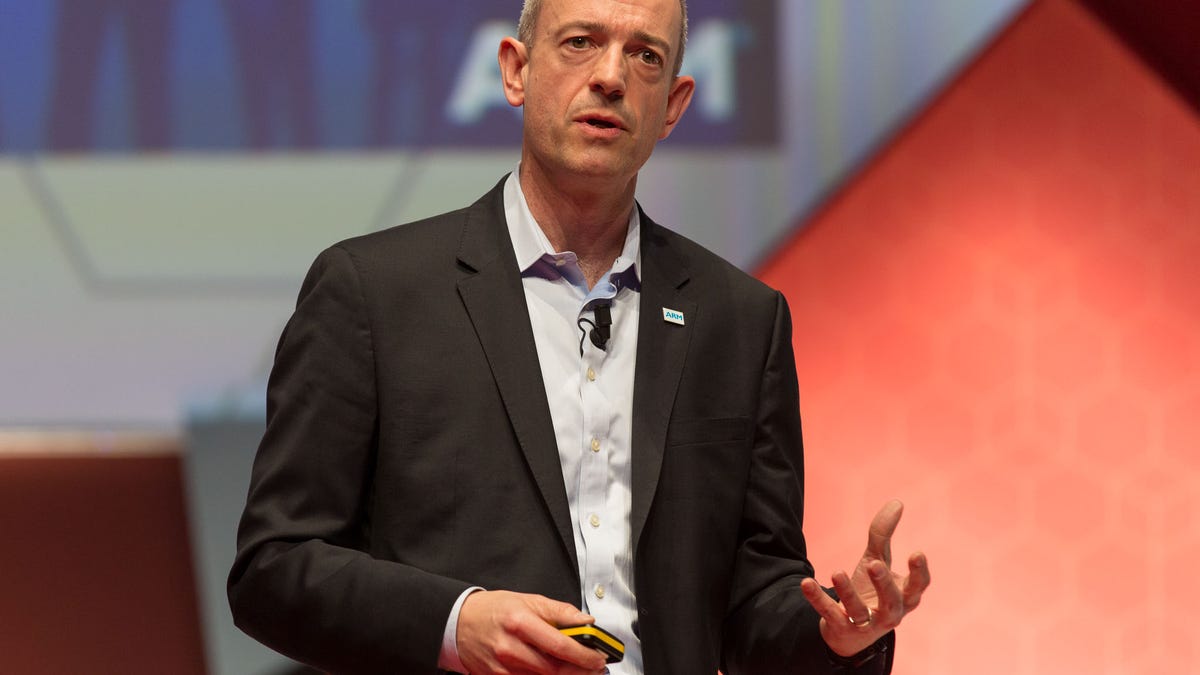Arm not helping Qualcomm ex-CEO Jacobs take dad's firm private
A report Thursday said Paul Jacobs, the former head of Qualcomm, has been talking to partner Arm about getting its help privatizing the chipmaker his father co-founded. Arm refutes the report.

Arm CEO Simon Segars and his chip design company won't be investing in Qualcomm.
Looks like Arm doesn't plan to buy part of Qualcomm after all.
CNBC reported on Thursday that Qualcomm's former CEO, Paul Jacobs, had been talking to strategic investors to help raise money to take the mobile chipmaker private. One investor name listed was Arm, the UK company that designs the architecture that's the basis of most mobile chips. Its customers, along with Qualcomm, include Apple and Samsung.
Arm said in a statement provided to CNET that CNBC's report was inaccurate.
"There have been no discussions between Arm and Paul Jacobs on any potential acquisition of Qualcomm," Arm said.
Jacobs, through a spokesperson, declined to comment.
Jacobs left his role as Qualcomm's chairman last month after Broadcom's hostile takeover attempt failed. Qualcomm announced that Jacobs was looking at buying out the company his father, Irwin Jacobs, co-founded. At the time, such an offer seemed to have little chance of success as Jacobs owned less than 1 percent of the company, which is valued at about $90 billion. Launching an offer for Qualcomm would require backers with deep pockets.
CNBC on Thursday reported that Jacobs has been talking to sovereign wealth funds and strategic investors to help take Qualcomm private in the next two months. Jacobs then would run the company, the publication said.
Going private could give Qualcomm some advantages. The San Diego-based company is the world's largest maker of chips and processors for phones, but it's been going through some turmoil over the past few months. Not having to answer to public shareholders could give Qualcomm time to sort out its legal problems and focus on the next generations of mobile technology.
But an investment by Arm could have been tricky. Qualcomm is one of Arm's biggest customers, but it also supplies chip designs to all of Qualcomm's rivals. If it's seen as favoring one customer enough to invest in the company, it could jeopardize Arm's relationship with others.
CNET Magazine: Check out a sample of the stories in CNET's newsstand edition.
Rebooting the Reef: CNET dives deep into how tech can help save Australia's Great Barrier Reef.

